How Safe Are Sodium-Ion Batteries? Key Safety Advantages Explained
Why Sodium-Ion Battery Safety Matters for Businesses
When companies invest in energy storage, safety is often the top priority. Incidents with lithium-ion batteries—fires, thermal runaway, and compliance hurdles—have pushed businesses to seek safer alternatives. This is where sodium-ion battery safety stands out.
Sodium-ion batteries are designed with superior thermal stability, reduced fire risks, and simpler compliance pathways compared to lithium-ion. For businesses navigating strict safety certifications and EU regulations, sodium-ion offers a lower-risk, future-ready solution.
👉 Related Reading: Sodium-Ion vs. Lithium-Ion: Which is the Future of Energy Storage?
Why Sodium-Ion Battery Safety Is a Business Advantage
Businesses evaluating energy storage must look beyond performance and cost. Sodium-ion battery safety impacts:
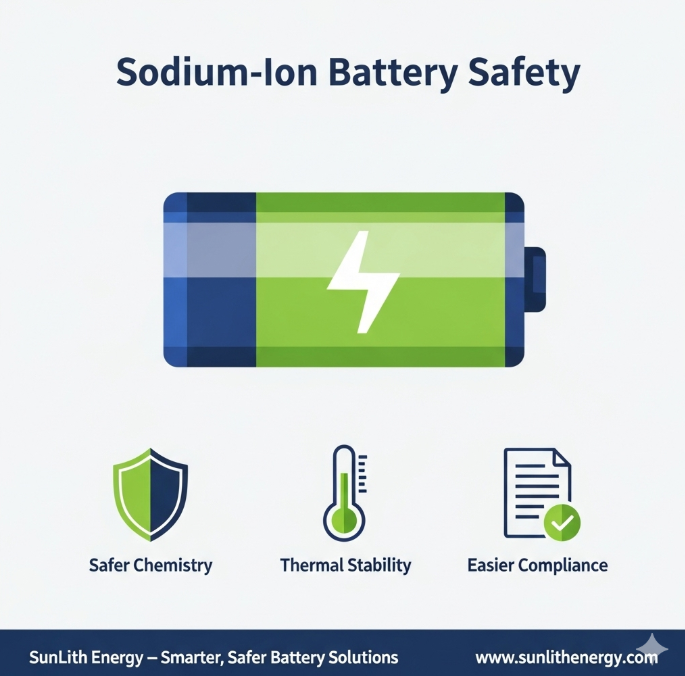
- Insurance premiums (lower with reduced fire risk).
- Regulatory compliance (simpler with safer chemistry).
- Operational reliability (less downtime from incidents).
- Reputation (trusted systems protect brand image).
👉 Related Reading: EU Regulations for Battery Energy Storage Systems (BESS): What You Need to Know in 2026
Thermal Stability: The Core of Sodium-Ion Battery Safety
Unlike lithium-ion, which can enter thermal runaway under stress, sodium-ion battery safety benefits from natural thermal stability.
- Operates safely at higher temperatures.
- Less prone to overheating in hot climates.
- Reliable for indoor storage systems with limited cooling.
👉 Related Reading: Top 5 Advantages of Sodium-Ion Batteries for Energy Storage Systems
Reduced Fire Risk
Lithium-ion incidents often stem from internal short circuits, overcharging, or dendrite formation. Sodium-ion’s chemistry avoids many of these risks.
- Uses safer electrolytes that are less flammable.
- Reduced chance of catastrophic failure.
- Lower insurance and safety management costs.
This makes sodium-ion battery safety especially attractive for residential, commercial, and industrial BESS.
Compliance and Certification Advantages
Meeting UL, IEC, and CE standards is a challenge with lithium-ion. Sodium-ion simplifies this process.
- Safer baseline chemistry reduces certification complexity.
- UL 1973 and IEC 62619 compliance is faster and cheaper.
- Easier adoption under EU Battery Regulation 2026.
👉 Related Reading: Different Types of IEC Standards for C&I BESS – And How Some Companies Misuse Certificates
Real-World Use Cases
- Homes & Apartments: Safe for garages and indoor ESS.
- Commercial Buildings: Schools, hospitals, and offices benefit from safer storage.
- Industrial & Utility-Scale: Lower risk of catastrophic failures in large installations.
In all these scenarios, sodium-ion battery safety lowers risk exposure while enabling smoother compliance.
Sodium-Ion vs. Lithium-Ion Safety: A Clear Comparison
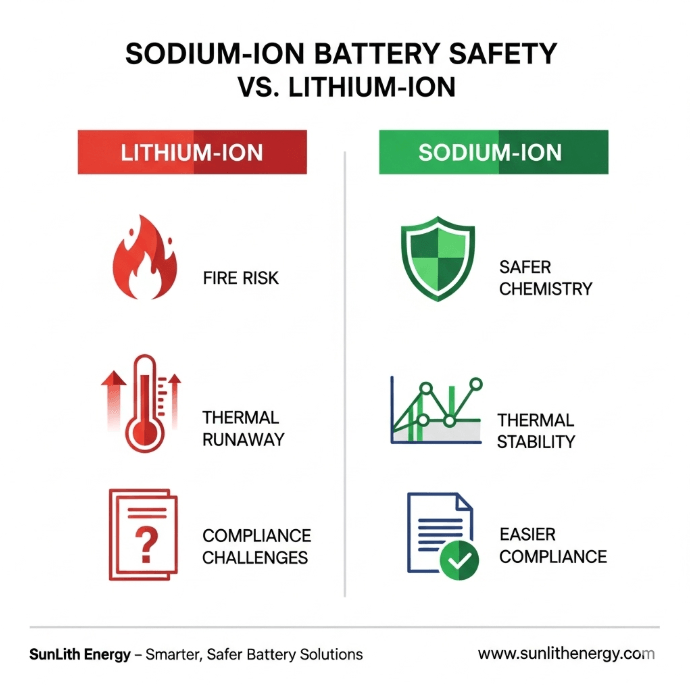
| Feature | Lithium-Ion | Sodium-Ion |
|---|---|---|
| Thermal Runaway | High Risk | Very Low Risk |
| Fire Hazard | Frequent | Minimal |
| Certification Complexity | High | Lower |
| Indoor Use | Limited | Safer |
Bottom line: Sodium-ion battery safety is a decisive advantage in regulated industries.
Conclusion: Sodium-Ion Battery Safety as a Market Driver
As businesses adopt cleaner energy storage solutions, sodium-ion battery safety is a critical reason for the shift.
- More thermally stable than lithium-ion.
- Lower fire risks for homes, businesses, and utilities.
- Easier compliance with UL, IEC, and EU regulations.
At SunLith Energy, we believe sodium-ion represents the future of safe, scalable energy storage. By prioritizing sodium-ion battery safety, businesses can reduce risks, protect their brand, and stay ahead of global compliance standards.


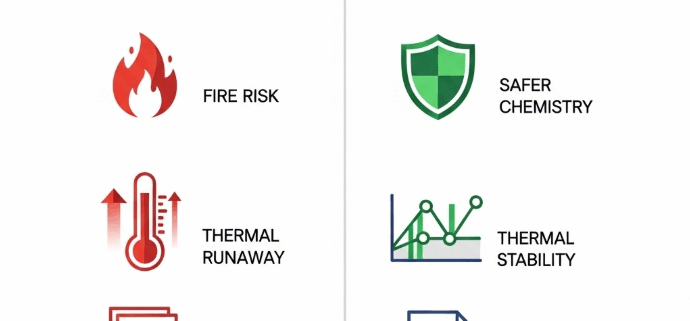
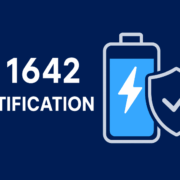
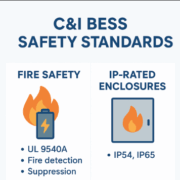

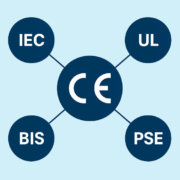


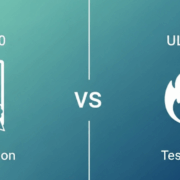
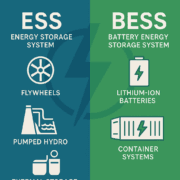


Leave a Reply
Want to join the discussion?Feel free to contribute!